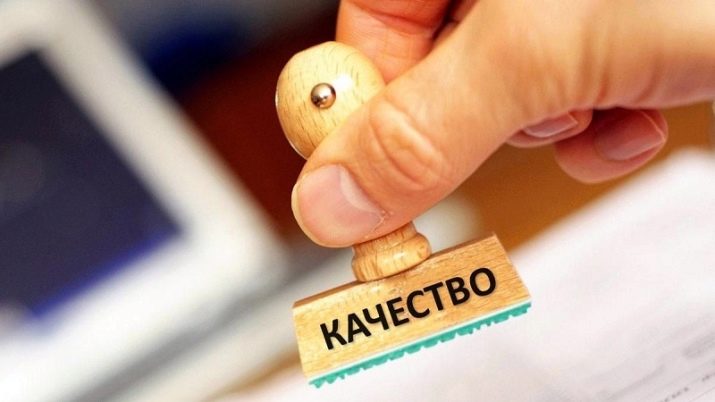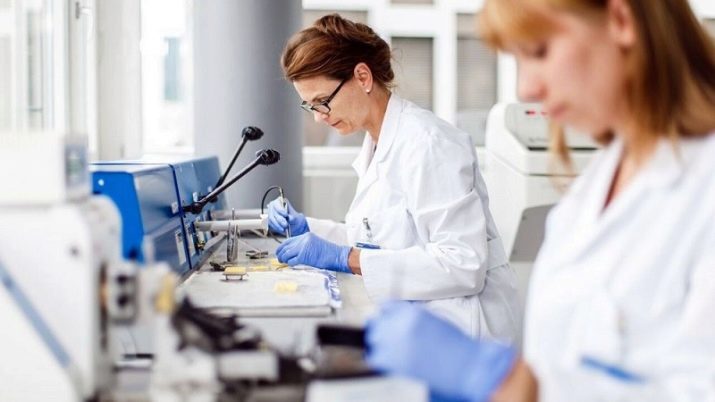There are a wide variety of professions and fields of activity. But the representation of a significant number of people about them is very superficial. Therefore, it is time to find out, for example, all about the profession of an engineer in quality.
Features
The name of the profession of an engineer in quality for many people is perplexing or misunderstanding. After all, any engineer, and just a developer, is ultimately obliged to work on the quality of his product, improve it in every way, and look for additional opportunities for improving products. But the bottom line is that the quality engineer is the same as the quality control department controller (if you take a somewhat outdated analogue). Today, specialists engaged in quality control are among the leading figures in any production enterprise.
They are no less significant than most asset managers or senior managers. If the quality of products or services does not meet the expectations of customers, the consumer quickly selects another company. And then the courts begin, various fines from state structures.
A quality engineer must have a college degree. A whole series of other requirements are presented to him, which will be discussed further.

Responsibilities
A typical job description for an ordinary and leading quality engineer lists the following functions:
- carrying out activities to improve product quality;
- control over the activities of structural units of the organization (so that they work well and clearly);
- monitoring compliance of products with Russian and international standards, relevant and expected consumer needs;
- maintaining compliance of products shipped to foreign customers with the main export requirements;
- development and improvement of the quality management system;
- preventing the production of substandard products, the provision of poor services or unfair work.
But this is not limited to the range of issues that a quality engineer in an organization does. Job description, professional standard and ETKS imply other duties. The specialist in this field performs the following functions:
- studies and analyzes all complaints received, analyzes their thoroughness;
- prepares reports for managers based on the results of complaints examined;
- participates in correspondence following the results of consideration of all complaints and claims in general;
- prepares conclusions on the quality of incoming raw materials and semi-finished products;
- assesses the knowledge of other specialists of the norms and requirements for finished products and services;
- if necessary, prepares documents for complaints to suppliers, contractors and other contractors;
- Helps management certify products, production lines, technologies, and selected innovations
- monitors compliance with the requirements of state oversight bodies and court decisions regarding the quality of finished goods and services, organization of production.


Knowledge and skills
Of course, such a responsible position implies a wide range of competencies, without which it is absolutely impossible to do even in the smallest production. Be sure to study:
- state and regional, industry and international requirements in the field of quality and characteristics of finished products, organization of the technological process;
- structure, features of the activities of a particular company and individual production facilities, lines, their sections;
- methods (methods) of destructive and non-destructive testing, the limits of their applicability and methods for assessing the achieved result;
- paperwork in general and in a specific organization, sphere in particular;
- powers of state oversight bodies and their individual employees;
- main types of production defects, conditions for its appearance;
- methods of masking marriage by unscrupulous employees;
- methods for detecting marriage; methods for detecting specific perpetrators;
- basic requirements for equipment and tools, jobs and labor organization, the technological process and the climate of workrooms;
- factors that may have a detrimental effect on quality - throughout the production chain, including among contractors;
- permissible and unacceptable modes of equipment operation;
- signs of wear of equipment and tools;
- calibration schedules of the applied equipment, methods for testing, tuning, commissioning, repair, reconstruction;
- the basics of labor law;
- safety standards;
- test rules for finished products.

But this is only knowledge, and there are also skills, and the ability to apply them. So, a good quality engineer is always also an excellent psychologist. He must be able to establish contact with a wide variety of people and, at the finest points, to grasp what they are trying to hide or play down. Further, you will definitely have to systematically refresh your knowledge. After all, the same legislation, different standards and regulatory requirements, technologies and machines are constantly changing.
An important skill for a quality engineer will be understanding of assembly, design, engineering, working and other documentation, diagrams and designations. He will have to develop the skill of a comprehensive understanding of how the finished product will be used. Indeed, the same thing in the conditions of a hot summer and in the middle of February somewhere in the center of Yakutsk can behave in a very different way. And this is just the most obvious example, and there are many more variables that affect the quality and usefulness of things. It will be useful to master such aspects:
- the fundamentals of the theory of law and the current practice of legal proceedings on quality in their field;
- the fundamentals of the organization’s economy (in order not to propose deliberately devastating measures to improve quality);
- a foreign language (you can even have more than one) - to quickly get acquainted with the requirements in other states, with new technologies;
- principles of labor protection and industrial safety (in order to be protected yourself and not offer anything that could harm other people);
- situation at enterprises of domestic and foreign competitors.

A survey of potential employers showed that during the interview and on a trial period they pay special attention to the following nuances:
- knowledge of English;
- understanding of the basic state standards in their industry;
- Introduction to ISO 9000
- special education (appropriate to the industry, that is, somewhere even biological, for example, is suitable);
- knowledge of ISO 17025;
- work experience in the specialty.
Sometimes (but very rarely) require ISO 14001, GMP, Lean Sigma. However, it’s good to at least understand what all this means. Knowledge of statistical methods and ways to increase efficiency is usually not checked.
But a good professional knows these points by heart. Just because without them you cannot improve your skills.

Education
By itself, the training of such a serious specialist should also be organized as seriously as possible. Even job descriptions strictly state that he is required to have a higher education. A good educational institution may be the Moscow Engineering and Economics Institute. Specializations such as “management” and “quality management” are suitable there. For residents of a number of regions, the South Ural State University is geographically more attractive (and no worse in terms of training).
Alternatives:
- MIREA (mechanical engineering, standardization and metrology, quality management);
- RANEPA (management, quality management);
- Baltic Voenmech (instrument making, standardization and metrology);
- Kurgan State University (standardization and metrology);
- Polytechnic University of St. Petersburg (engineering, product technology and catering);
- DvFU (quality management, chemical technology);
- UrFU (printing and packaging production technology, quality management).

Place of work
A quality engineer can work in the production of any profile. But good specialists have a narrow range of application of forces. It is extremely unlikely that one and the same person, for example, will be able to manage quality equally well in food production, in the nuclear industry and on the railway. This specialist can also find a place in:
- pharmacology;
- car manufacturing;
- production of building materials;
- textile industry;
- service industry;
- woodworking;
- mechanical engineering;
- metallurgy, metalworking;
- sewing, shoe industries;
- construction and repair organizations and many more dozens of different areas.
A quality engineer often accompanies entire projects throughout their life cycle.. So, without his participation development of new types of products is not complete. And even the removal of a product from the range of actual products is usually associated with its corresponding conclusion.
Entry-level specialists can expect a salary of 30-40 thousand rubles per month. When the first or second category is assigned, income grows by 40-100%.

On average in Russia, the spread of salaries among quality engineers ranges from 25 to 120 thousand rubles. In the capital, the minimum figure is about 40,000 rubles. The most advanced specialists can count on 150,000 rubles. But for this it will be necessary to prove itself very well, to “make a name” in the professional community. Career prospects are usually limited only by practical specialization, which does not allow you to easily and simply move to another industry.The next step (which is no longer directly related, however, to engineering activity) is to obtain the position of head of the department or to supervise a large infrastructure project.
With experience, a quality engineer will be able to enlist in government agencies. There, his skills will be interested in both the departments for accepting external orders and various expert units. But basically, such a transition implies finding a job as an inspector or inspector. This is quite reasonable: after all, the quality engineer in the process of work begins to understand how certain defects are masked. So, he will become the most competent controller. And here it is worth mentioning a few more subtleties that directly affect the work of such a specialist.
Most importantly, he will be the middle manager. And this means that more demands are placed on his appearance and behavior than on an ordinary employee.

Further, the professional activity of a quality engineer at the present stage is unthinkable without computer-aided design systems and other information technologies. More importantly, product characteristics should not be an end in themselves; will have to think through everything so that they match its purpose.
At the workplace of a quality manager, only a person who knows how to weigh different options for the development of events and the likely consequences of each step can linger for a long time. Moreover, this will have to be done immediately according to many criteria, given the lack of time and sometimes the known incompleteness of information. It is impossible and never will be possible to eliminate uncertainty in such an area. If only because every new type of product, every new technological process has its own pitfalls.
In the end, it is worthwhile to provide information on the average income of a quality engineer in several more regions:
- Yekaterinburg - 53,000 rubles;
- Rostov-on-Don - 49,000 rubles;
- Novosibirsk - 48,000 rubles;
- Volgograd - 32,000 rubles;
- Vladivostok - 56,000 rubles;
- St. Petersburg - 60,000 rubles.











